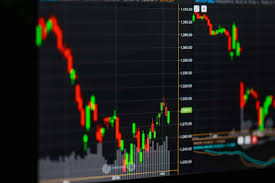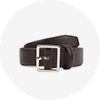- No Products In The Cart
- start shopping
Understanding Forex Trading Brokers A Comprehensive Guide 1630312250

Forex trading, or currency trading, is one of the most popular forms of investment in the world today. With a daily trading volume exceeding $6 trillion, the Forex market offers unique opportunities for traders and investors alike. However, to navigate this complex environment successfully, it’s essential to understand the crucial role that trading brokers play. In this article, we will explore various aspects of Forex trading brokers, including how to select the right one for your needs. If you’re looking to get started, you might find valuable resources at trading brokers forex https://tradingplatform-hk.com/.
What is a Forex Trading Broker?
A Forex trading broker acts as an intermediary between the trader and the interbank system. When a trader wants to buy or sell currency, they do so through a broker who facilitates the transaction. Brokers provide traders with access to trading platforms, tools, and resources necessary for Forex trading, making them a vital part of the trading ecosystem.
Types of Forex Brokers
Forex brokers can be broadly categorized into three main types: market makers, STP (Straight Through Processing) brokers, and ECN (Electronic Communications Network) brokers.
Market Makers
Market makers create a market for various currency pairs by providing liquidity. They set the bid and ask prices, profiting from the spread. While they can offer competitive spreads, they can also have conflicts of interest since they may profit when traders lose.
STP Brokers
STP brokers connect traders directly with liquidity providers. They typically pass orders to the interbank market, thus offering tighter spreads. These brokers may charge a commission per trade instead of profiting from the spread, aligning their interests more closely with those of their clients.
ECN Brokers
ECN brokers provide a platform where traders can trade with one another directly. They offer deep liquidity and a variety of pricing options, often resulting in the best possible spreads. However, they usually charge a commission per trade which can be a consideration for frequent traders.

How to Choose the Right Forex Broker
Selecting the right Forex broker is crucial for your trading success. Here are key factors to consider during the process:
Regulation and Safety
Ensure that the broker is regulated by a reliable financial authority. Regulatory bodies such as the FCA (UK), ASIC (Australia), and CFTC (USA) impose strict guidelines to protect traders. Trading with a regulated broker mitigates risks associated with fraud and malpractice.
Trading Platforms
The trading platform is your primary tool for trading. Look for brokers that offer user-friendly platforms with robust features such as real-time data, charting tools, and automated trading options. Popular platforms include MetaTrader 4 (MT4), MetaTrader 5 (MT5), and cTrader.
Funds Safety
Check how the broker safeguards client funds. Many reputable brokers maintain segregated accounts to ensure that client funds are protected in case of bankruptcy or financial trouble.
Spreads and Commissions
Compare the spreads and commissions of different brokers. A lower spread can significantly affect your profitability, especially if you are an active trader. However, always consider your trading strategy and frequency when assessing costs.
Customer Support
Effective customer support can be a lifesaver during crucial trading moments. Ensure your broker offers responsive and knowledgeable support options, including live chat, email, and phone support.

Understanding Trading Tools and Features
Many Forex brokers offer additional trading tools and features that can enhance your trading experience. These can include:
Educational Resources
Choose a broker that provides educational material, such as webinars, articles, and tutorials. This knowledge can assist you in making informed trading decisions and improving your skills.
Research and Analysis Tools
Good brokers offer research and analysis tools to help traders make educated decisions. Tools that provide market updates, economic calendars, and analysis reports are beneficial.
Automated Trading Options
If you are interested in algorithmic trading, check if your broker supports trading robots or automated trading systems. This functionality can help you execute trades based on predetermined conditions, eliminating emotional bias.
Potential Risks with Forex Trading
Though Forex trading can be lucrative, it also contains inherent risks. Given the volatility of currency markets, traders can experience substantial losses. It’s crucial to implement risk management strategies such as stop-loss orders to protect your capital.
Conclusion
Choosing the right Forex trading broker is a fundamental step towards successful trading. Understanding the different types of brokers, their features, and the associated risks will empower you to make an informed decision that aligns with your trading goals. Always conduct thorough research and consider factors like regulation, trading platform, spreads, and customer service. Taking these steps will help ensure that your Forex trading experience is both profitable and enjoyable.

